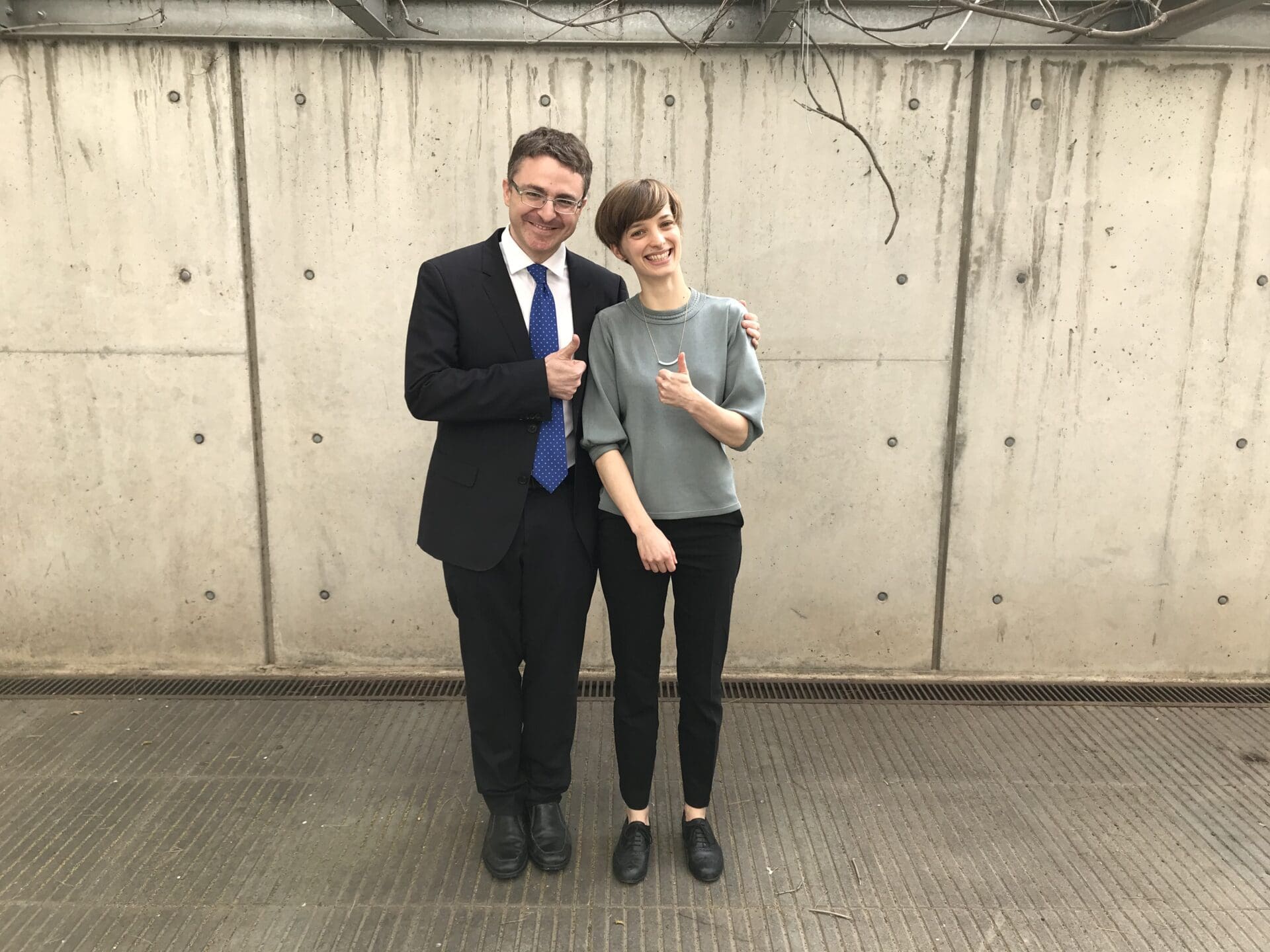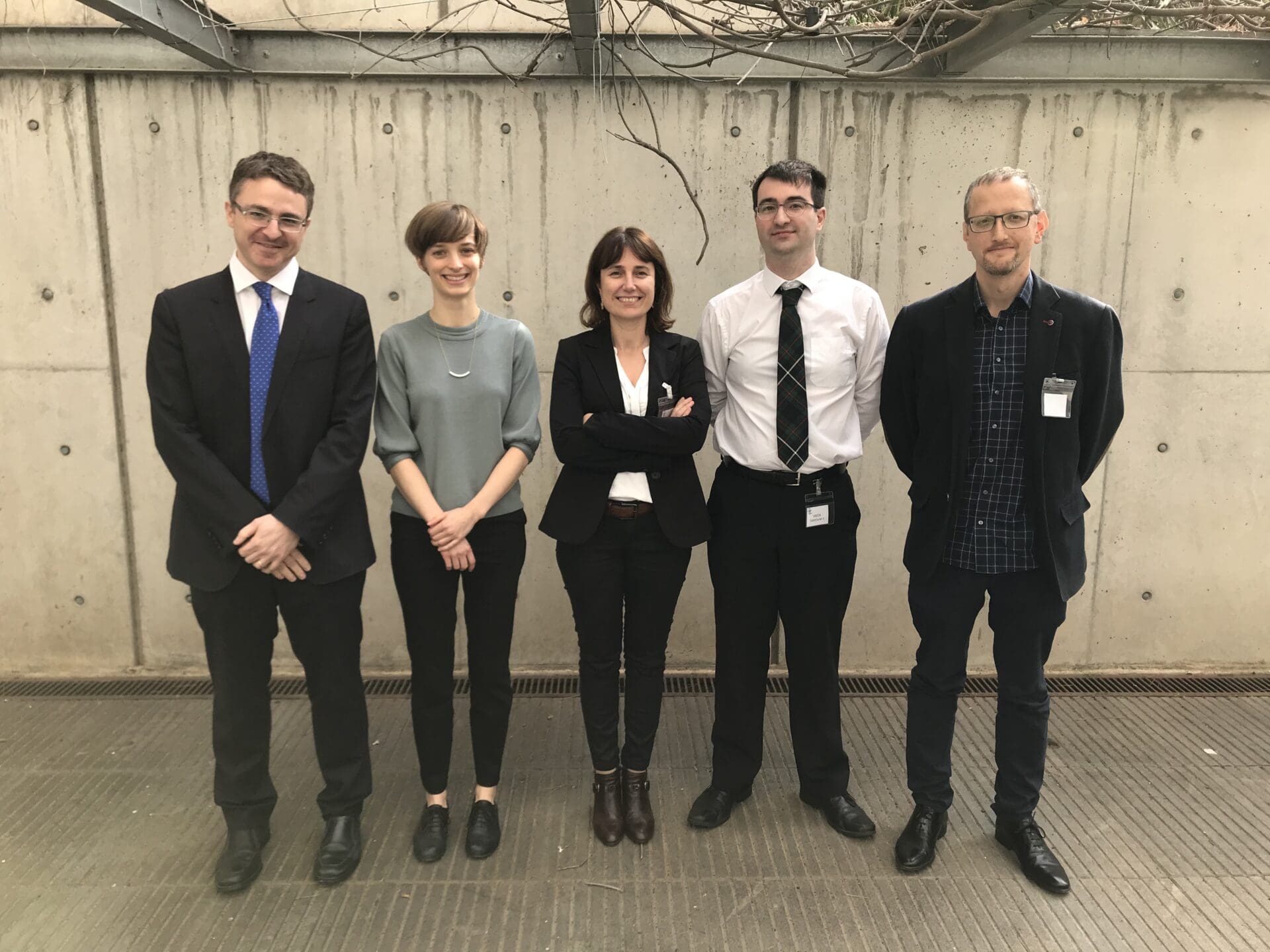Congratulations Dr. Somerville, we’re stoked!
Rosie Somerville, PhD student under the supervision of Prof. Rubén Martín (ICIQ), has defended her PhD thesis entitled “Mechanisms of Ni-Catalysed C–O Functionalisation and Carboxylation Reactions” (assigned to the Department of Analytical Chemistry and Organic Chemistry of the Universitat Rovira i Virgili) publicly on February 13th at the ICIQ Auditorium.
The members of the examining committee were: Prof. David Nelson (University of Strathclyde), Prof. Àlex Shafir (IQAC-CSIC, Barcelona), and Prof. María Amor Rodríguez (IIQ-CSIC, Sevilla).
Dr. Somerville grew up in Wellington (New Zealand), the windiest city in the world. She obtained her BSc and Master’s degrees in Chemistry at Victoria University of Wellington and then decided to travel to the other side of the world to do her PhD at ICIQ thanks to La Caixa-Severo Ochoa international PhD fellowship. She likes climbing and practicing jujitsu. She also likes Tarragona because it has less drizzle and horizontal rain… but she is still in love with Wellington.
Why did you become a scientist?
At high school, I had some teachers who encouraged me to enjoy science in different ways, particularly Ms. Hartel and Mr. Fernandez. Mr. Fernandez taught me that everyone can be scared to try something new, but that sometimes taking a risk is necessary to do what you really want.
From the lessons learnt at ICIQ, which one do you value the most?
I learnt a lot about myself. For instance, that you shouldn’t be shy to ask questions to your supervisor or colleagues: they are here to help you too. They also taught me not to worry if the experiments don’t work the first time, maybe one just needs more attempts to refine the procedure.
What will you miss the most from ICIQ?
I’ll miss the people of ICIQ. I had the chance to meet amazing people and to make some good friends from here – the memes we shared! Also, ICIQ has very good facilities for research.
What advice do you have for someone who’s starting their PhD now?
Don’t be shy to ask for what you need, and don’t be scared to try experiments. If they work, that’s great and if they don’t, then you can extract new information from them that will help you repeat the experiment. Also, 3-4 years is quite a lot of time, so don’t panic.
Where are you going next? What will you do there?
I’ll join the Campos group at the Instituto de Investigaciones Químicas (IIQ) in Sevilla, where I will work as a postdoc. I’ll be doing chemistry with late transition metals and will be combining them with some of the heavier group 14 (and maybe group 13) elements.
If you were a piece of lab equipment, what would you be?
The Glovebox! Doing my chemistry would have been more difficult without it because it stores all the compounds that are sensitive to air and water. It is particularly useful for the nickel chemistry that is done in my group as we often work with air-sensitive precursors.
Related news

Let's create a brighter future
Join our team to work with renowned researchers, tackle groundbreaking
projects and contribute to meaningful scientific advancements








 20-12-2024
20-12-2024 


















